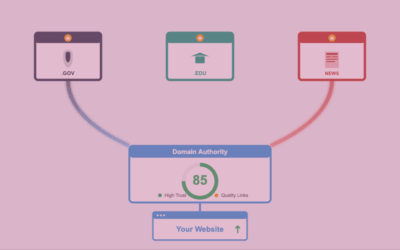When your website pages compete against each other for the same search terms, you’re dealing with keyword cannibalization. This silent SEO killer can slash your organic traffic and confuse search engines. Most website owners don’t realize they’re fighting themselves until their rankings start to slip.
What is Keyword Cannibalization?
Keyword cannibalization happens when multiple pages on your website target the same keyword or search intent. Instead of having one strong page that ranks well, you end up with several weak pages that compete against each other.
Definition and Concept
Keyword cannibalization occurs when search engines can’t determine which page on your site should rank for a specific query. When you have multiple pages targeting the same keyword, Google gets confused about which one to show users. This confusion leads to ranking instability, where different pages from your site appear in search results at different times.
Keyword vs. Content Cannibalization: Understanding the Difference
Keyword cannibalization focuses specifically on targeting the same search terms across multiple pages. Content cannibalization involves pages that cover similar topics or serve the same user intent, even if they don’t use identical keywords. For example, separate pages about “digital marketing tips” and “online marketing strategies” might face content cannibalization even though the exact keywords differ.
Common Causes of Keyword Cannibalization
Poor content planning is the biggest culprit behind cannibalization issues. When content creators don’t audit existing pages before publishing new ones, they often create competing content without realizing it. Website migrations and redesigns frequently cause problems when old content gets moved or duplicated. E-commerce sites face unique challenges with product variations and categories that naturally overlap.
Real-World Examples of Cannibalization Issues
A fitness blog might have separate pages for “weight loss exercises,” “fat burning workouts,” and “exercises to lose weight.” All three pages target users looking for exercise routines to lose weight, creating direct competition. E-commerce sites commonly face cannibalization with product variants like separate pages for “men’s blue jeans,” “men’s denim pants,” and “blue jeans for men.”
Why is Keyword Cannibalization Harmful to SEO?
Keyword cannibalization damages your SEO efforts by diluting your content’s power across multiple competing pages. This dilution makes it harder for any single page to rank well for your target keywords.
Impact on Search Rankings and Organic Traffic
When multiple pages target the same keywords, none of them can build the authority needed to rank at the top of search results. Instead of having one page that might rank in the top five, you end up with multiple pages stuck in lower positions. This positioning drastically reduces your organic traffic potential.
Diluted Page Authority and Link Equity
Every incoming link gets distributed across competing pages instead of building up one authoritative source. This link equity dilution weakens your overall topical authority. Instead of search engines seeing you as the definitive source on a topic, they see multiple mediocre pages that don’t demonstrate clear expertise.
Wasted Crawl Budget
Search engines allocate a specific crawl budget to each website. When you have multiple pages targeting the same keywords, search engines waste crawl budget on duplicate or competing content. This means search engines might not discover your most important new content quickly.
Confused Search Intent Signals
When you have multiple pages targeting the same keywords, you send mixed signals about search intent. This confusion makes it harder for search engines to match your content with user queries. Different pages might target the same keyword but serve different purposes, creating mixed messaging.
When Cannibalization Isn’t Always Problematic
Location-specific pages can target similar keywords without causing issues when they serve distinct geographic markets. Multiple pages can also coexist when they serve different search intents, like informational versus commercial content. Some competitive keywords benefit from strategic SERP domination with complementary content.
How to Identify Keyword Cannibalization Issues
Detecting cannibalization requires systematic analysis of your website’s content and performance data. Multiple methods exist for identifying these issues, from automated tools to manual detective work.
Using SEO Tools for Detection
SEMrush provides dedicated cannibalization reports that show pages competing for the same keywords. Ahrefs offers similar functionality through its keyword cannibalization report. These tools analyze your site’s rankings and identify instances where multiple pages rank for identical search terms.
Google Search Console Methods
The Performance report in Google Search Console shows which pages rank for which keywords. Look for keywords that drive traffic to multiple pages from your site. If you see the same keyword sending traffic to several different pages, you likely have a cannibalization issue.
Manual Detection Techniques
Using Google’s site search operators helps identify pages that might be competing. Search for “site:yoursite.com [keyword]” to see all pages from your site that Google considers relevant for that keyword. This technique reveals pages that might not obviously compete but are actually targeting similar search terms.
Comprehensive Solutions to Fix Keyword Cannibalization
Fixing cannibalization requires strategic decisions about which content to keep, consolidate, or redirect. The approach depends on the specific situation and the value of each competing page.
Content Consolidation Strategies
Start by auditing your competing content to understand which pages perform best. Analyze performance metrics like traffic, rankings, and conversions to identify your strongest content. Create a decision framework that prioritizes pages based on their authority, traffic potential, and business value.
Technical Fixes
Use 301 redirects when you decide to consolidate multiple pages into one authoritative source. Implement canonical tags when you need to keep similar pages but want to designate one as the primary version. Optimize internal linking to strengthen your chosen primary pages and reduce emphasis on competing content.
Content-Based Solutions
Create cornerstone or pillar pages that become the definitive resource on specific topics. Restructure existing content to target different search intents clearly. Merge underperforming content into stronger pages to consolidate authority and improve user experience.
Keyword Cannibalization Prevention Strategies
Prevention is more effective than fixing cannibalization after it occurs. Building systematic approaches to content planning helps avoid these issues entirely.
Creating a Robust Keyword Strategy
Develop comprehensive keyword maps that assign specific keywords to individual pages. This mapping prevents multiple pages from targeting identical terms. Include search intent analysis to ensure each page serves a distinct purpose in your content ecosystem.
Implementing Regular Content Audits
Schedule quarterly content audits to identify potential cannibalization issues before they impact rankings. These audits should analyze both keyword targeting and content themes to catch overlapping topics early.
Maintaining a Keyword and Topic Map
Keep updated documentation of which pages target which keywords. This living document helps content creators avoid creating competing content. Include information about search intent and target audience to guide future content decisions.
Measuring Success After Fixing Cannibalization
Track specific metrics to measure the impact of your cannibalization fixes. Monitor organic traffic changes for affected keywords and pages. Watch for improved ranking stability and higher average positions for your target terms.
Key metrics include consolidated page performance, reduced ranking fluctuations, and improved click-through rates. Most improvements become visible within 4-8 weeks after implementing fixes, though competitive keywords may take longer to stabilize.
Common Mistakes When Addressing Keyword Cannibalization
Avoid deleting valuable pages without thorough analysis of their traffic and link value. Don’t over-rely on canonical tags when 301 redirects would be more appropriate. Improper content merging can create unfocused pages that serve no clear purpose.
Many website owners also neglect internal linking opportunities when fixing cannibalization. Use the consolidation process to strengthen your internal linking structure and better distribute page authority throughout your site.
Building a Cannibalization-Free SEO Strategy
Keyword cannibalization undermines your SEO efforts by splitting your content’s power across competing pages. The solution involves systematic identification of issues, strategic consolidation of content, and preventive planning for future content creation.
Success requires ongoing vigilance through regular audits and maintained keyword mapping. By treating your website as a coordinated content ecosystem rather than a collection of independent pages, you can build stronger topical authority and achieve better search rankings.
The investment in fixing and preventing cannibalization pays dividends through improved organic traffic, higher conversion rates, and more efficient use of your content creation resources. Start with your most important keywords and work systematically through your content to build a unified, powerful SEO strategy.



